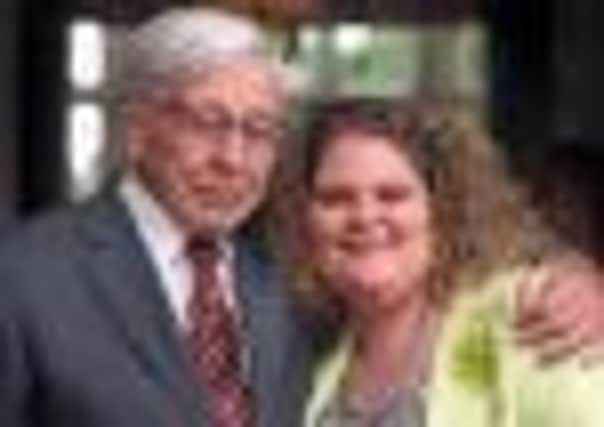Obituary: Sir Robert Edwards, 87


Professor Edwards, who studied at the Institute of Animal Genetics in the Capital, helped develop Invitro fertilisation (IVF).
In a paper published a decade ago, Edwards explained that he first got the idea for human IVF while studying for the PhD. He was working with mouse embryos and testing hormone preparations that induced female mice to ovulate.
Advertisement
Hide AdAdvertisement
Hide AdYears later, he asked gynaecologists if they would give him ovarian tissue that they had removed from patients for other reasons. Edwards sought to induce the eggs in the tissue to mature then he would fertilize them and transfer them to infertile women to produce pregnancies.
His work, with Dr Patrick Steptoe who died in 1988, led to the birth of the first-ever test-tube baby, Louise Brown, at Oldham General Hospital in 1978 and a further five million births.
Richard Anderson, professor of clinical reproductive science at Edinburgh University, said Prof Edwards was an inspiration, adding: “The work of Robert Edwards was of immense medical and scientific significance. Professor Edwards became fascinated with reproductive science during his PhD at Edinburgh, leading to a remarkable career that has not only inspired other scientists but had an immense impact on so many lives.”
Working with colleagues at Cambridge University, Sir Robert succeeded in fertilising the human egg outside the body in 1969.
Advertisement
Hide AdAdvertisement
Hide AdThis laid the foundations for the clinical application of IVF at Oldham and District General Hospital, where Louise Brown was born.
Edwards and Steptoe conducted their research in the face of hostile opposition from church leaders, governments, and sections of the media, and scepticism from scientific colleagues. They struggled to raise funds and had to rely on private donations, but doggedly continued.
Speaking today, Dr Allan Pacey, chair of the British Fertility Society (BFS) which represents IVF clinics, described Sir Robert as “a giant”.
He added: “His work transformed our view of infertility from something that must be endured to a potentially treatable medical condition. He will be greatly missed and his contribution to humankind is unmeasurable.”
Advertisement
Hide AdAdvertisement
Hide AdAnna Veiga, chair of the European Society of Human Reproduction and Embryology (Eshre), described Sir Robert as a “tireless and inspirational leader”. “It’s fair to say that the infertility treatments we have today would not have been developed without his direction,” she said.
Sir Robert was born in Batley, Leeds, on September 27, 1925. He attended Manchester Central High before serving in the army in Palestine, Jordan and Egypt. In 1951 he gained a Bachelor of Science degree from the University of Bangor, Wales, and went on to obtain a doctorate from the University of Edinburgh in 1955.
He leaves his wife Ruth, five daughters and 12 grandchildren.